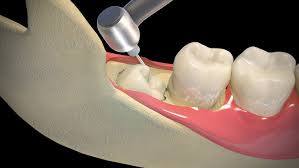How Many Calories Do We Need to Eat A Day During Weight Loss

Losing weight is a subject of much interest for many people, but often, it is misunderstood. Many individuals believe that the key to weight loss is simply to drastically cut calorie intake. However, reducing calories too much can be detrimental to your health. The body requires a certain amount of energy to function properly, and consuming too few calories can lead to a variety of health issues. So, how many calories should we actually consume during weight loss to ensure a healthy and sustainable process?
What are the common calorie intake misconceptions?
When it comes to dieting, there are numerous misconceptions about calorie intake that could potentially hinder your weight loss journey. These misconceptions often lead to ineffective or even harmful dieting practices. Let’s explore some of the most common misunderstandings surrounding calorie intake during weight loss.
Misconception 1: The Fewer the Calories, the Better
Many people believe that the fewer calories they consume, the faster they will lose weight. This is a dangerous misconception. While it’s true that reducing calorie intake is necessary for weight loss, consuming too few calories can have the opposite effect. Severely restricting calories lowers the body’s basal metabolic rate (BMR), the rate at which your body burns calories at rest. As a result, the body may enter a state of “starvation mode,” where it conserves energy rather than burning fat. This can ultimately slow down weight loss and may lead to muscle loss, nutrient deficiencies, and other health problems. Using a Calorie Counter can help you track your intake more accurately to avoid falling into this trap.
Misconception 2: Focus Solely on Total Calorie Intake, Ignoring Nutrients
Another common mistake is to focus only on reducing total calorie intake, without considering the nutritional quality of the food you eat. While cutting calories is important for weight loss, the type of calories you consume is just as crucial. A balanced diet with adequate protein, healthy fats, and complex carbohydrates is essential for supporting metabolism, maintaining muscle mass, and overall health. Ignoring these nutrients in favor of simply reducing calories can lead to imbalances, poor energy levels, and a higher risk of nutrient deficiencies. For more comprehensive tracking, you can also use tools like Calorie AI, which can adjust your nutritional analysis based on your goals.
How to calculate your daily calorie needs?
Understanding how to calculate your daily calorie needs is vital to achieving a healthy and sustainable weight loss. Your body requires a certain number of calories to perform basic functions and support daily activities. Let’s break down the key factors that affect your total calorie requirements during weight loss.
Basal Metabolic Rate (BMR)
Your BMR represents the number of calories your body needs to perform basic life-sustaining functions, such as breathing, circulating blood, and regulating temperature. It’s the baseline calorie requirement for maintaining your current weight. To lose weight, you must consume fewer calories than your BMR plus any additional calories burned through physical activity. Various online calculators can estimate your BMR based on factors such as age, gender, and weight.
Physical Activity Level
In addition to BMR, the calories burned through physical activity contribute significantly to your daily energy expenditure. The more active you are, the higher your calorie needs will be. Exercise intensity and duration play a major role in determining how many additional calories you need to consume. For instance, a person who exercises regularly will require more calories than someone with a sedentary lifestyle. Adjusting your calorie intake to account for exercise ensures that you maintain a calorie deficit for weight loss while supporting your body’s energy demands.
Calorie Deficit
To lose weight, you must create a calorie deficit, which means consuming fewer calories than you burn. A calorie deficit of 500-1,000 calories per day is typically recommended for safe and sustainable weight loss, resulting in a gradual loss of 1-2 pounds per week. It’s important to avoid creating too large of a deficit, as this can lead to muscle loss, nutrient deficiencies, and other health issues. A well-planned calorie deficit, combined with proper nutrition and exercise, can help you achieve weight loss without compromising your health.
Losing Weight ≠ Starving: Calorie Distribution for a Healthy Diet
One of the key aspects of weight loss is ensuring that you maintain a healthy, balanced diet while cutting calories. Focusing on calorie distribution and the types of foods you consume is just as important as managing the total calorie intake. A balanced diet should include adequate protein, healthy fats, and complex carbohydrates, which support different bodily functions, such as muscle preservation, metabolism, and energy production.
- Protein: Protein is essential for maintaining muscle mass, especially during weight loss. When in a calorie deficit, your body may break down muscle for energy if it’s not provided with enough protein. Including lean protein sources, such as chicken, fish, tofu, and legumes, can help preserve muscle tissue while promoting fat loss.
- Carbohydrates: Carbohydrates are the body’s primary source of energy. While many people think of carbs as a hindrance to weight loss, they are essential for fueling your daily activities and supporting brain function. Focus on consuming complex carbohydrates such as whole grains, vegetables, and fruits, which provide long-lasting energy and essential nutrients.
- Fats: Healthy fats play an important role in supporting metabolic processes, hormone production, and vitamin absorption. Fats also contribute to satiety, helping you feel fuller for longer and preventing overeating. Sources of healthy fats include avocados, nuts, seeds, and olive oil.
What Factors Affect Calorie Consumption?
Calorie consumption doesn’t just depend on the amount of food you eat; several physiological and lifestyle factors influence how many calories you burn each day. Let’s take a closer look at some of the main factors that can impact your total calorie consumption.
- Muscle Mass: Muscle is more metabolically active than fat, meaning that individuals with more muscle mass will have a higher BMR and burn more calories at rest. Strength training exercises are an excellent way to build muscle and increase your calorie burn.
- Exercise Intensity and Duration: The more intense and longer the duration of your workouts, the more calories you will burn. High-intensity interval training (HIIT) and other strenuous exercises increase calorie expenditure both during and after exercise.
- Sleep Quality: Getting adequate and restful sleep is crucial for regulating metabolism and maintaining hormonal balance. Poor sleep can disrupt appetite-regulating hormones, leading to overeating and weight gain.
- Age: As you age, your metabolism naturally slows down, meaning that your body requires fewer calories. This is due to a combination of muscle loss, hormonal changes, and other age-related factors. Adjusting your calorie intake and increasing physical activity can help mitigate these effects.
How to Adjust Calorie Intake During Weight Loss Plateau?
The dreaded weight loss plateau is a common phenomenon where, despite continued efforts, your weight seems to stall. This can be frustrating, but it’s important to understand that plateaus are a natural part of the weight loss process.
What is a Weight Loss Plateau?
A weight loss plateau occurs when your body adapts to the calorie deficit and exercise routine, resulting in a temporary halt in weight loss. This can happen after weeks or months of consistent dieting and exercise. The body becomes more efficient at using energy, making it harder to continue losing weight at the same rate.
How to Break Through a Plateau
- Adjust Your Diet: Consider altering your calorie intake or the composition of your diet. You might need to reduce calories further or shift your macronutrient ratio to increase fat loss. A small reduction in calories can help restart the weight loss process.
- Increase Exercise Intensity: Adding variety to your exercise routine or increasing workout intensity can help you break through the plateau. You could try incorporating strength training or HIIT to boost calorie expenditure.
- Ensure Adequate Sleep: Proper rest is essential for weight loss. Aim for 7-9 hours of sleep per night to support your metabolism and help your body recover.
Conclusion
Losing weight is a gradual process that requires a balance between calorie intake, nutrition, and exercise. Rather than focusing on drastic calorie restriction, it’s important to maintain a healthy, balanced diet that supports your body’s needs. By calculating your calorie needs based on factors like BMR and activity level, and by adjusting your approach as needed, you can ensure that your weight loss journey is both effective and sustainable. Remember, healthy weight loss is not about starving yourself but about nourishing your body while creating a calorie deficit.



